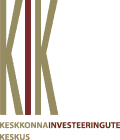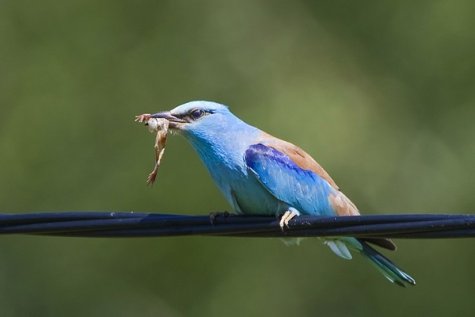Birder's diary - 13.06
Birder Margus Ots, Linnuvaatleja.ee
Photo: Arne Ader
Translation: Liis
European roller
Today a rather thorough search for the European roller (Coracias garrulus) was organised. The species has become extremely rare here in Estonia during the last decade, on a regular basis only a few pairs have been nesting in Valgamaa at the Latvian border, but in the last few years it has not been found even there. Last year there were not even any reliable sightings from all Estonia. Neither have any reports arrived from the old nesting grounds this year. I checked a quite large area from Valga to Krabi, but as feared, no blue bird was detected. Sad if a once quite numerous and widely spread breeding bird species has disappeared from us. If anyone should notice an European roller anywhere then please be sure to let the Estonian Ornithological Society know.
The Valgamaa trip was not quite pointless however. On the Taheva parish lands I finally found the black stork (Ciconia nigra) for my 2012 year list. Surprising that I have not come across this species earlier, all active birdwatchers have seen it long ago. The black stork is the 263rd species on my year list and this is now also my new year record. Ten years ago (in 2002) I saw altogether 262 species during the whole year which also was the Estonian record for birds seen in one calendar year until 2009. When so many species have been collected already in half a year, it might seem at first glance as if even 300 species might be seen in the year. Conjectures are possible but it is not as simple as that. I have seen almost all the ”certain” species already, and only rarities can be added now. In the second half of the year rather up to 10 species might be added but not really 30 or more. 300 species during one year in Estonia has not even been achieved as a total among all birdwatchers taken together.
For the evening I had planned to reach Setomaa where I then would have checked the old territories of the booted warbler (Iduna caligata). In Estonia the species has been nesting already for 10 years in the Obinitsa - Meremäe area, but Latvia got the booted warbler into their list of species only this year. Since several driving shortcuts passed through Latvia I decided to look around a little more in north-eastern Latvia and if possible find some new booted warbler territories. The booted warbler nests in uncultivated meadows and fields that begin to be overgrown with shrubs. Last year we checked the Aluksne area but no suitable habitat was immediately recognizable. Now I headed for the north-eastern corner of Latvia, the Pededze (Pedetsi) region. Eastwards of the Pedetsi river things started to look promising, that is, there seemed to be a number of suitable habitats for the booted warbler. To start with I drove around for a while intending to look over the best places on my way back. But the booted warbler trip ended unexpectedly. Suddenly Latvian border guards stepped up and asked what I was studying here. It was evidently a great surprise for them that anyone would be just observing birds. A foreigner with binoculars, telescope and camera seemed especially suspicious. Anyway, to my surprise I was asked for a permit to be in the area. I was informed that I was in a border zone and that for this a written permit was required (this is however about the Russian, not the Estonian border). The thing did remind of other times and another state, but maybe these things still continue as before in Latvia. In Estonia the border guards may check your documents in the border zone but no permit, particularly not in writing, is required. I wasnot very keen on arguing with the border guards, because all data were registered and I was informed that if I were seen again in the border zone I might be awarded a 250.- lat fine. In practice I was guided out of the border zone along the largest road, which regrettably meant that I could not go back along the road that I came by, and in order to reach the Rammuka border station I had to go by a detour of several tens of kilometres. After all the mess I lost the taste for Latvian birdwatching and in the future I will focus on the Estonian year list.









